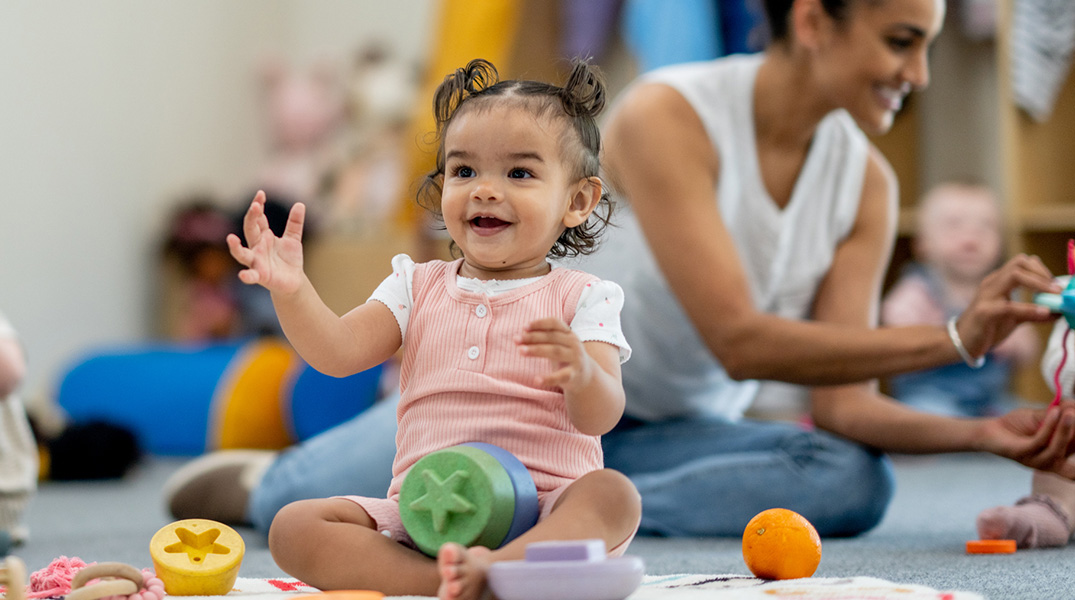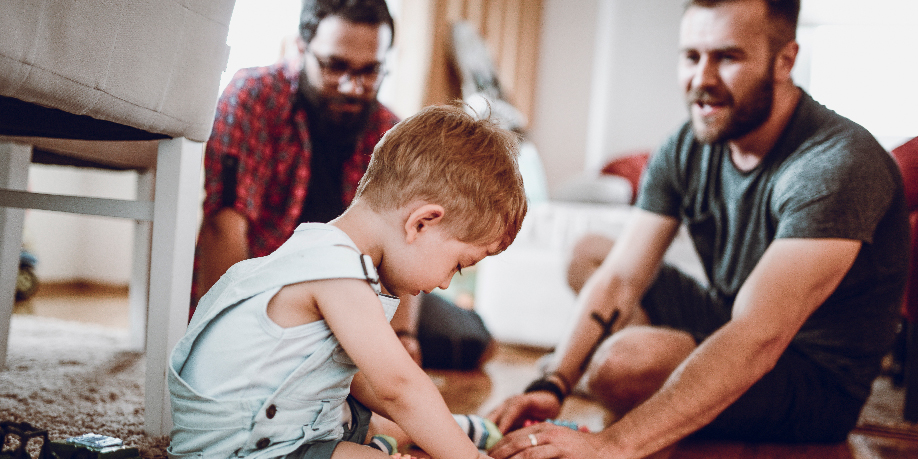12-18 months
This is a guide to how children typically learn to talk and understand words between 12 – 18 months.

Children develop skills at different rates but by 18 months, usually children will:
- Enjoy listening to music and singing, and sometimes move their body to ‘dance’ along to music.
- Enjoy looking at simple picture books together with an adult.
- Understand many more words than they can say, including the names of everyday objects like furniture, clothing and body parts.
- Understand some simple questions and instructions like ‘where’s teddy?’ and ‘kiss Mummy’.
- Say up to 20 single words (such as ‘cup’, ‘daddy’, ‘dog’) to ask for things or to point out what they see, even though they may not be very clear yet.
- Use a lot of babble and single words while they are playing. They often sound like they are saying little sentences even though you can’t make out what the words are.
- Copy a lot of things adults say or do, like saying ‘hi’, waving bye-bye or clapping.
- Enjoy simple pretend play, such as giving dolly a drink or pretending to talk on the phone.
- Get your attention to show you or ask for things using pointing, actions or words.
- Start to get more independent although they still like to be near you.
Support children aged 12-18 months with their talking and understanding of words

Things to look out for
Some children struggle with learning to talk and understand words. Look out for:
- Toddlers who aren’t babbling to talk by 12-15 months.
- Toddlers who haven’t said their first words by 18 months.
- Toddlers who don’t appear to understand some of what you say to them by 18 months.
If you notice any of these things, have a closer look at the toddler’s speech, language and communication skills using one of our free tools:
Follow the process in your setting/workplace for raising concerns. This should include discussing your concerns with the toddler’s family and your SENCo. Statutory guidance is outlined in the SEND Code of Practice (2015).
Further support
For tips on how you can support a toddler aged 12-18 months’ communication skills, have a look at some of our educator resources:

